Effective Strategies for Managing Your Finances in Singapore
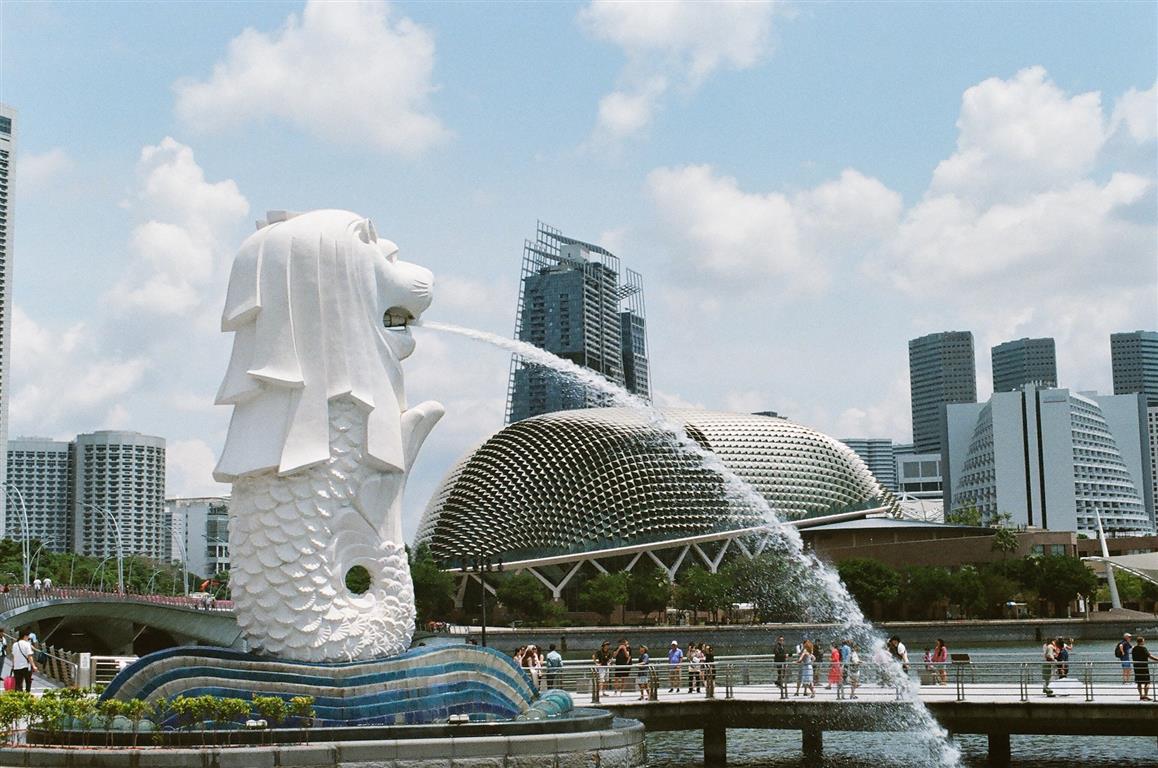
Sponsored by Hei Biz
Expats are known for their ability to adjust to new environments. This is especially true when managing finances as an expat in Singapore. As an expat, you'll have certain rights and responsibilities that you'll need to be aware of before moving abroad. You must know these to manage your finances effectively in Singapore. In this article, we will talk about taxes, properties, transportation and food.
Understanding Personal Income Taxes in Singapore
The first step toward understanding how to manage your finances in Singapore is knowing what taxes apply to you and how much they will cost each year. Income taxes are required for working in Singapore if they are citizens or permanent residents (PRs).
Singapore has one of the lowest income tax rates in the world, especially for individuals with higher incomes. The income tax rate in Singapore ranges from 0% to 22% for individuals, depending on their income level.
Here is a breakdown of the personal income tax rates for tax residents in Singapore:
- 0% on the first S$20,000 of chargeable income
- 2% on the next S$10,000
- 3.5% on the next S$10,000
- 7% on the next S$40,000
- 11.5% on the next S$40,000
- 15% on the next S$40,000
- 22% on the remainder of chargeable income above S$150,000
Please refer to the Singapore tax authority website for the latest personal income tax rates.
Although Singapore is not a member of the OECD (Organization for Economic Co-operation and Development), we can still compare Singapore's income tax rates with some OECD countries.The income tax rates in OECD countries vary significantly depending on the country, with some countries having higher rates than Singapore, and some having lower rates. The average top income tax rate for OECD countries is around 41%, which is significantly higher than Singapore's top rate of 22%.
It's worth noting that the personal income tax rates in OECD countries are also affected by various deductions, allowances, and tax credits, which can make the effective tax rate different from the nominal tax rate. Singapore's tax system is very different from most OECD countries in that it does not have a social security system or a wealth tax. In Singapore, individuals are responsible for their own retirement savings, and there is no inheritance tax or gift tax.
Understanding Goods and Services Tax (GST) in Singapore
It is essential to understand the Goods and Services Tax (GST). The GST is a value-added tax (VAT in other countries) on most goods and services sold in Singapore. The revenue collected from the GST is used to fund various government programs and services, such as healthcare, education, and infrastructure development.
Here are some things that you need to know about the GST:
- The current GST rate in Singapore is 8%. This means that for every $100 spent on goods and services, an additional $8 will be charged as GST.
- Most goods and services in Singapore are subject to GST (If you purchase from GST Registered Business). This may include goods sold in shops, food and drinks served in restaurants, and services such as hairdressing, repair and maintenance, and professional services.
The GST rate in Singapore has remained unchanged since 2007, although there have been discussions about potentially increasing it in the future to address the country's fiscal needs.
Managing Real Estate Living Expenses
Whether to pay rent or buy a home in Singapore as an expat depends on various factors, including your financial situation, lifestyle, and plans.
Pros and Cons of renting in Singapore
Pros:
- Flexibility: Renting allows you to move quickly without worrying about selling the property or paying mortgage payments.
- No Maintenance Cost: When renting, you do not have to worry about maintenance costs. This is the landlord's responsibility.
- Lower upfront cost: Renting a home in Singapore generally requires less upfront cost than buying a home. This can be especially beneficial for those who are just starting out or those who do not have a lot of savings.
- Access to amenities: Many rental properties in Singapore are located in areas that offer easy access to amenities such as public transportation, shops, restaurants, and entertainment.
Cons:
- No Equity: Renting does not offer the same opportunity to build equity as owning a property. This means that you will not be building wealth through the property itself, but only through the money you save on housing costs.
- Rent Increases: In Singapore, rental costs can be high, especially in popular areas or for newer properties. In addition, your landlord may increase the rent when your lease expires.
- No control over property: When you rent a property, you are subject to the rules and regulations set by the landlord or property owner. This can limit your ability to make changes to the property or to the way you use it.
Buying a property in Singapore
If you're interested in purchasing property instead then there are several factors worth considering before making such an investment.
If you are a foreigner looking to buy a property in Singapore instead, whether it be a luxury condominium like Pine Tree Hill and J'den Condo that will be launching in 2023 or landed property, there are certain restrictions that you need to be aware of. For example, you may only purchase certain types of properties, such as condominiums and apartments, and you may need to obtain approval from the Singapore Land Authority before you can proceed with the purchase.
Additionally, there are taxes and fees that you will need to pay, such as stamp duty and legal fees. Foreigners who purchase property in Singapore are subject to additional buyer's stamp duty (ABSD). The current ABSD rate is 30% for foreigners who are not permanent residents and are purchasing their first residential property in Singapore. Expats planning to make Singapore a permanent place of stay can consider waiting until they receive the Permanent residence (PR) stats before purchase, as the ABSD rate will be lowered to 5% for the first purchase for a PR holder.
If you are a Singaporean citizen or permanent resident, you have more flexibility in terms of the types of properties you can purchase, and you may also be eligible for certain government schemes, such as the Central Provident Fund (CPF) Housing Grant.
Overall, buying a property in Singapore can be a good investment, as the property market has historically shown steady growth. However, it is important to do your due diligence and research before making any purchases, and to seek professional advice from real estate agents and lawyers to ensure that the transaction is legally and financially sound.
Food Expenses
Singapore is famous for its delicious food, and the city-state offers various dining options. But the city is also known to be expensive , and the cost of food can be quite high compared to other Southeast Asian countries. However, the actual cost of food can vary depending on where you choose to eat and what type of food you want.
While restaurants and food courts are popular, many locals and expats eat at hawker centers. Hawker centers are open-air food courts that offer a variety of local dishes at affordable prices. For example, You can get a plate of delicious local food for as little as SGD3 to SGD5, much cheaper than you would pay at a restaurant or food court. In addition, you can get a refreshing glass of iced tea or a can of soft drink for as little as $1 to $2. Some popular hawker centers in Singapore include Maxwell Food Centre, Tiong Bahru Market, and Lau Pa Sat.
If you prefer to eat at a restaurant or café, prices can be higher, especially in tourist areas or upscale neighborhoods. A basic meal at a mid-range restaurant can cost anywhere from SGD 15 to SGD 30 or more and they usually charge $4 to $5 for a similar beverage, while fine dining establishments can be even more expensive.
In general, it's also worth noting that prices for food and other goods in Singapore may have increased since my knowledge cutoff due to inflation and other economic factors.
Transportation Expenses
As an expat in Singapore, whether or not you need to purchase a car or take public transport largely depends on your preference and budget. Singapore's transportation system is known for being efficient and well-connected, with a variety of options available for commuters and visitors. Here are some rough estimates of the costs for different modes of transportation in Singapore:
The Mass Rapid Transit (MRT) system covers most of the island and is a popular choice for locals and expats. The bus system is also comprehensive and affordable, with many routes connecting different parts of the city. Single-trip fares for MRT and bus range from SGD 0.92 to SGD 2.28 depending on the distance travelled and mode of payment (EZ-Link card or cash). However, if you plan to use public transport frequently during your stay, it may be more cost-effective to purchase a Singapore Tourist Pass, which allows unlimited travel on public transport for 1, 2, or 3 days, at a cost of SGD 10, SGD 16, or SGD 20 respectively (prices 2021).
Taxis in Singapore are metered and fares start at SGD 3.20 for the first kilometer and increase based on distance and time. There may also be additional charges for peak hours, airport trips, and tolls.
Ride-hailing services such as Grab and Gojek are popular in Singapore and can be convenient for short trips or when public transport is not available. Prices vary depending on the distance travelled, demand, and time of day, but can be similar to taxi fares or slightly cheaper.
On the other hand, purchasing a car in Singapore can be expensive due to high taxes and registration fees. For example, the Certificate of Entitlement (COE) for a 1600cc car in March 2023 costs up to SGD 90,000 (without including the price of the car). Refer to the COE website for the latest rates. However, owning a car can be convenient and provide more flexibility in the city.
Ultimately, purchasing a car or taking public transport will depend on your individual transportation needs and preferences. Some factors to consider may include your budget, commute time and distance, work schedule, and lifestyle preferences.
Open a local bank account in Singapore.
Opening a local bank account in Singapore can make managing your finances much more manageable. It will enable you to avoid international transaction fees and use local banking services.
Singapore has several local banks, including DBS, UOB, and OCBC, which offer various services, including savings accounts, credit cards, and loans. The local banks in Singapore currently provide reasonable interest rates on your deposits, ranging from 3.5%-7%.
Consider Investing your income for Growth.
Investing can be a smart way to grow your wealth over time. Several investment options are available in Singapore, including stocks, bonds, and mutual funds. However, it is crucial to research and understand the risks involved before investing your money. You may also consider speaking to a licensed financial advisor to help you make informed investment decisions.
Famous local investment brokerage firms include OCBC Securities and DBS Vickers Securities.
Conclusion
In conclusion, managing your finances as an expat in Singapore requires knowledge and planning. With careful planning, you can enjoy all Singapore offers while maintaining financial stability and security.
- My Life Abroad -
A selection of expat stories

"A fun compulsive read!"
J. Matcham, Amazon
"I strongly advise people ready to live abroad to read this book!"
Patrice, Amazon

 How currency fluctuations affect expat property investments
How currency fluctuations affect expat property investments How exchange rates can affect how you pay for a property overseas
How exchange rates can affect how you pay for a property overseas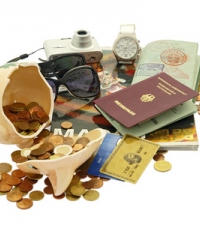 What are the Benefits of using a Broker to Manage Regular Overseas Payments?
What are the Benefits of using a Broker to Manage Regular Overseas Payments? Fexco payment solutions
Fexco payment solutions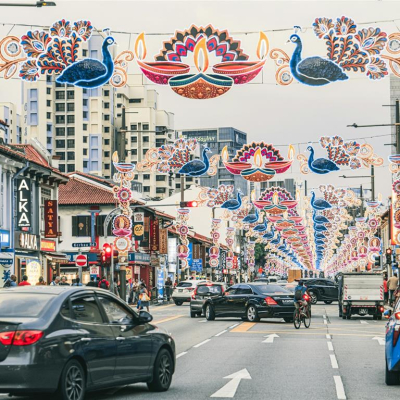 Uncovering the Best neighbourhoods in Singapore for Expats
Uncovering the Best neighbourhoods in Singapore for Expats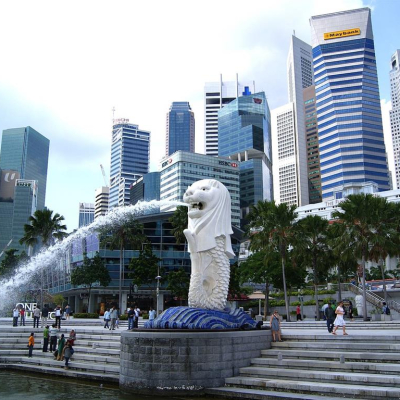 Property rental price in Singapore
Property rental price in Singapore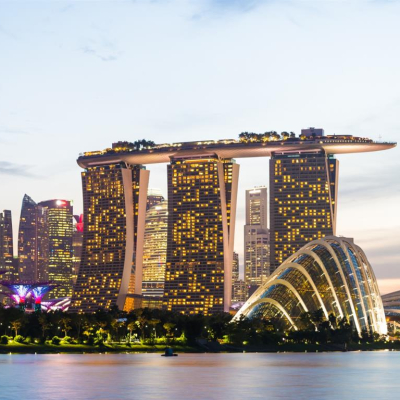 Singapore new Work Visa for high-paid expats
Singapore new Work Visa for high-paid expats